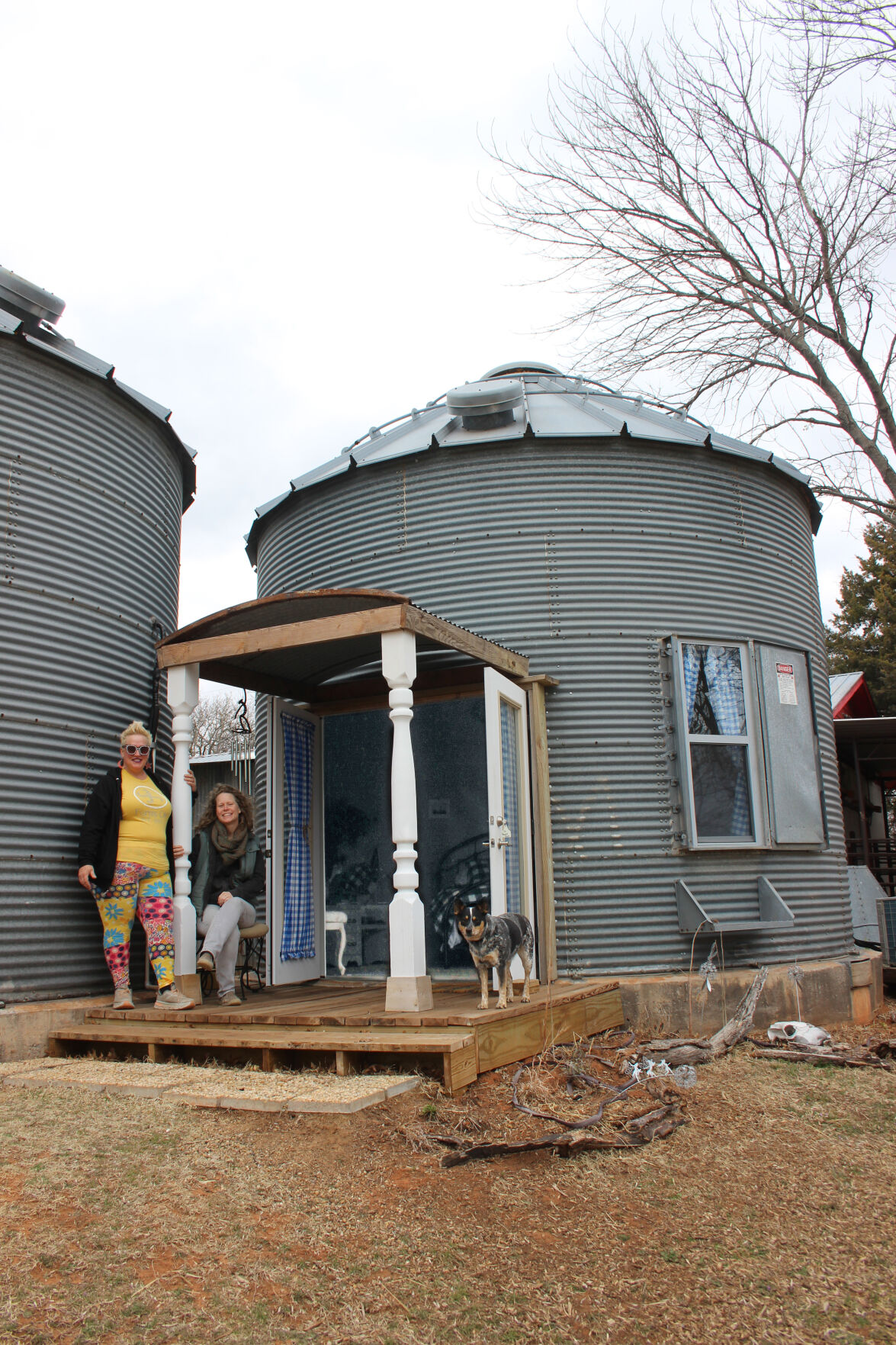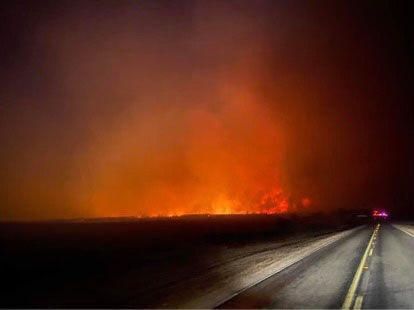Imagine the warm, tropical sun on your skin, the sound of waves crashing against the shore and condensation dripping off the piña colada in your hand. Imagining is about as close as most farmers and ranchers get to this idyllic vacation scene, but it seems nowadays vacationers are flipping the script and looking to rural areas for their relaxing retreats. Short-term vacation rental companies like Airbnb and VRBO have proven themselves not only as an alternative to hotels, but also as marketing tools that can lead to lucrative side hustles for agricultural operations.
The purpose of these rental websites is to provide a marketplace for property owners to list their homes, apartments, townhouses, condos and in some cases, converted grain bins, for travelers to book accommodations. The owner can make extra income off his vacant property and renters are offered more options to fit their budget and expand the fun of their vacation.
In part due to the pandemic, city slickers have been in search of fresh air and a connection to the great outdoors, making rural listings some of the most searched properties on these vacation rental websites. Airbnb reported a 1,055% increase in user searches for rural listings—also known as farm stays—in 2021 as compared to 2019. Consequently, this has turned into much needed extra income for farms. Airbnb reported to Forbes magazine that the average rural host has taken in $8,448 from the start of the pandemic to April of last year. In fact, Airbnb stated it has over 57,000 rural listings on its website alone, and between 2018 and 2019, over 943,534 people stayed on a farm they found through Airbnb. Other websites like Farm Stay USA, are doubling down on the notion of a farm-cation and offering only farm and ranch lodgings and activities.
One example of an agricultural operation taking advantage of the farm-cation popularity is 3J Farms in Blanchard, Oklahoma. Originally started as a family dairy operation in 1977—Jennifer Hernandez and her sister, Jillian Estes, brought their parents’ vacant farm back to life in 2017 after a car crash took their brother Jesse Estes’ life the year prior. Additionally, Jennifer’s husband, Luis, manages the livestock; Traci DeSantis manages the greenhouse and Blake and David Crystal handle maintenance around the farm.
“We’ve all been bonded together through the death of my brother,” Jennifer explained. “Death is one of those things we don’t talk about very often. When we lost Jesse, it flipped our world. My brother and I always thought if we don’t put the farm back into production of some sort, then our kids certainly never would. I thought if we could get it going, our kids could pick it up eventually.”
3J Farms includes an organic, grass-fed beef operation with rotational grazing, online meat store, greenhouse and a converted grain bin that can be rented out on Airbnb. Jennifer said Jesse used the empty grain bin as a fort when he was young, but a few years ago she got the idea to turn it into a small apartment.
“The idea to convert it into a rentable living space came out of wanting to utilize every building on the farm and not wanting to build any new structures on the property,” she said. “My mom has been paying taxes on those structures since she has lived there, we might as well make them into something that we can use.”
Known as the Peacock Room on Airbnb for the peacock “Dwayne” who struts around the farm, the one bedroom has been available to rent since last fall at $75 a night. Jennifer said she has had a number of people stay in the Peacock Room and it has been a fun project to undertake. Although the restroom and kitchen are in a separate building, Jennifer said she has plans to add a bathroom to one side of the grain bin. However, the best aspect of offering up the Peacock Room to guests is the ability to connect patrons to the farm and teach them about where their food comes from.
3J Farms
Jennifer said the farm is grass-fed mostly to keep costs down and avoid heavy machinery. 3J Farms also uses rotational grazing to improve the soil, which suffered from years of compaction from the dairy cows.
“We’ve tried to remove as many of the added inputs as possible to be more sustainable,” Jennifer explained. “The less I rely on those the better off I am. My parents didn’t know what they were doing, but having lots of animals in small areas is detrimental to the health of your soil. We are trying to bring this back to a productive farm using the same animals that destroyed it in the first place, but managing them completely different. Instead of spending years in one pasture, they are going to spend two or three days there, two or three times a year. That encourages plant growth and loosens up the soil.”
In an effort to improve the soil and feed the cattle, 3J Farms uses cover crops, including white clover, red clover and alfalfa to fertilize the Bermuda grass. They also plant turnips and radishes to relieve soil compaction and use wheat and triticale for winter forage for the cattle. Jennifer said the drought has been tough on their forages, but their use of rotational grazing and movable fencing helps to keep the pressure off the forage.
“We make 3- to 5-acre paddocks and move them every three to five days,” Jennifer said. “The goal is to get at least 60 days rest in between every grazing.”
In January of 2021, 3J Farms started an online meat store with a home delivery service.
“Amazon is no dummy,” Jennifer said. “They paved the way and showed others that we all like home delivery service. Overall, it has definitely been a winner and continues to grow. The online store for us is a lot of direct marketing to individuals and talking to them via email and we’re always trying to grow our email list to direct people to our store.”
During the height of the pandemic, 3J Farms only seemed to expand. Their meat demand went up and they even started offering classes to people who wanted to learn about agriculture and gardening. During that time Jillian was on the farm full-time, but with less hands and more time selling at the farmer’s market, Jennifer said they just are not able to offer the classes this year.
The greenhouse segment of the farm is another avenue consumers take to end up at the farm. In fact, their yearly 99 cent vegetable and plant sale is coming up April 13 to 17.
“We raise about 30,000 plants and buy about 60,000 to 70,000 to resell, so we move about 100,000 plants a year,” Jennifer said. “While I like growing food, I love growing people. I love any chance that I can get people out to my farm to show them where their food lives, how it’s grown and to actively participate in it, whether that’s growing a plant, seeing cattle graze or learning that potatoes are dug out of the ground.”
Jennifer challenged other farmers and ranchers to try to make a connection with consumers whenever they can.
“Most farmers like farming and playing in the dirt, they don’t necessarily like peopling and discussing these issues,” she said. “That is a large part of why we aren’t as connected with consumers. Consumers are in the grocery stores putting things in their basket and unless they’re at a farmer’s market talking to the producer, most of the time the consumer and farmer won’t meet. I think it’s our job as farmers to get out in our communities, talk about our products and reconnect with our consumers.”
Additional information about 3J Farms is available at www.3jfarmsok.com.
Lacey Vilhauer can be reached at 620-227-1871 or [email protected].




